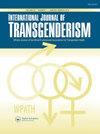挖掘表面之下:影响魁北克跨性别青年福祉的因素定性分析第一阶段的结果
Q1 Social Sciences
引用次数: 60
摘要
背景:关于跨性别青年的文献主要是对跨性别经历作为一种医学现象感兴趣的病因学研究。越来越多的文献开始记录跨性别青年是一个多样化的、脆弱的、但有弹性的群体,并调查各种支持场所的作用,如家庭、同伴团体、机构和社区空间,在促进或阻碍跨性别青年的幸福方面。方法:本文介绍了基于魁北克的社区参与行动研究(CBPAR)定性研究项目的访谈(n = 24)的第一阶段结果。它研究了提高跨性别青年幸福感的因素以及对其产生负面影响的压迫因素。本文简要概述了该项目使用的反压迫方法,强调了CBPAR如何与扎根理论(GT)方法相结合,以鼓励社区直接参与并将知识转化为行动。结果:我们提出了通过正在进行的轴向编码过程出现的初步分类。这些类别涉及跨性别青年在各种“场所”的经历和看法:1)与性别有关的医疗保健服务和一般护理,2)其他机构空间,3)家庭和其他社交圈,以及4)社区空间。结论:虽然这项研究的大部分结果支持现有的关于跨性别青年经历的证据,但它们也提供了一个更细致入微的描述,即在不同的场所,识别、不识别、错误识别或错误识别如何影响跨性别青年的幸福。我们还认为,识别本身必须通过交叉性的镜头来考虑。本文章由计算机程序翻译,如有差异,请以英文原文为准。
Digging beneath the surface: Results from stage one of a qualitative analysis of factors influencing the well-being of trans youth in Quebec
ABSTRACT Background : The literature on trans youth has been dominated by etiological studies interested in trans experience as a medical phenomenon. An emerging body of literature has begun to document that trans youth are a diverse, vulnerable, yet resilient population, and to investigate the role of various sites of support such as the family, peer groups, institutions, and community spaces in contributing to or impeding trans youth's well-being. Method: This article presents the results of Stage One of interviews (n = 24) conducted for a Community-Based Participatory Action Research (CBPAR) qualitative research project based in Quebec. It studies the factors that enhance trans youth's well-being as well as the factors of oppression that negatively affect it. This paper offers a brief overview of the anti-oppressive methodology used for this project, emphasizing how CBPAR was combined with Grounded Theory (GT) methods to encourage the direct involvement of communities and the translation of knowledge into action. Results: We present preliminary categories emerging through the ongoing axial coding process. These categories address trans youth's experiences in and perceptions of various “sites”: 1) healthcare services both for gender-related and general care, 2) other institutional spaces, 3) the family and other social circles, and 4) community spaces. Conclusion: While much of this study's results support existing evidence on trans youth's experiences, they also provide a more nuanced portrayal of the complex ways in which recognition, as well as non-, mis-, or mal-recognition, influence trans youth's well-being at different sites. We also argue that recognition itself must be considered through the lens of intersectionality.
求助全文
通过发布文献求助,成功后即可免费获取论文全文。
去求助
来源期刊

International Journal of Transgenderism
Social Sciences-Gender Studies
CiteScore
5.10
自引率
0.00%
发文量
0
期刊介绍:
International Journal of Transgenderism, together with its partner organization the World Professional Association for Transgender Health (WPATH), offers an international, multidisciplinary scholarly forum for publication in the field of transgender health in its broadest sense for academics, practitioners, policy makers, and the general population.
The journal welcomes contributions from a range of disciplines, such as:
Endocrinology
Surgery
Obstetrics and Gynaecology
Psychiatry
Psychology
Speech and language therapy
Sexual medicine
Sexology
Family therapy
Public health
Sociology
Counselling
Law
Medical ethics.
 求助内容:
求助内容: 应助结果提醒方式:
应助结果提醒方式:


